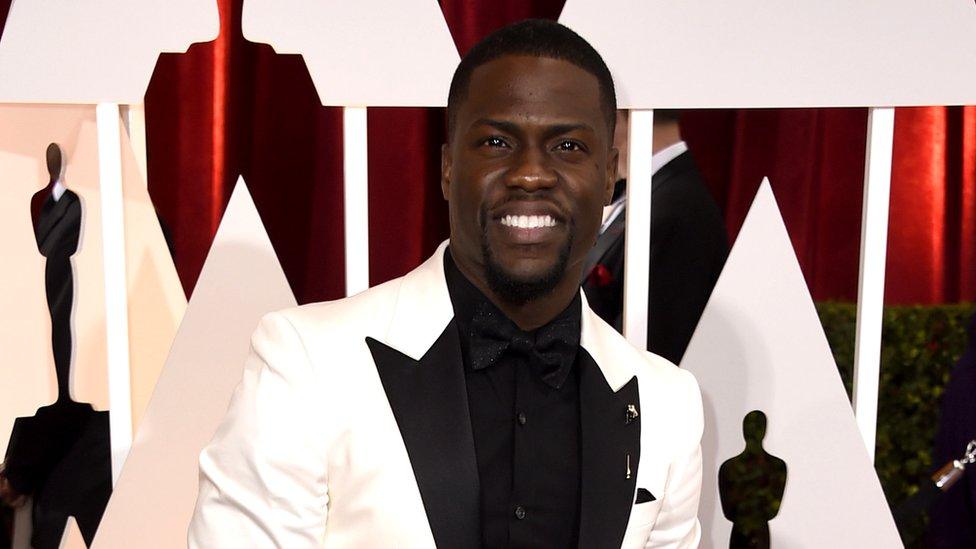Oscars 2019 ceremony to go without host after Kevin Hart row
- Published

Jimmy Kimmel hosting the 2018 Oscars
This year's Oscars will be held without an official host - for the first time in 30 years.
The head of ABC Entertainment, which airs the Academy Awards ceremony, said it would instead highlight celebrities presenting the trophies.
Reports had suggested the broadcaster was struggling to fill the role - one of the toughest in US show business.
In December, comedian Kevin Hart pulled out of hosting the ceremony following a controversy over old homophobic tweets.
He said he did not want to be a distraction and that he was "sorry he had hurt people".
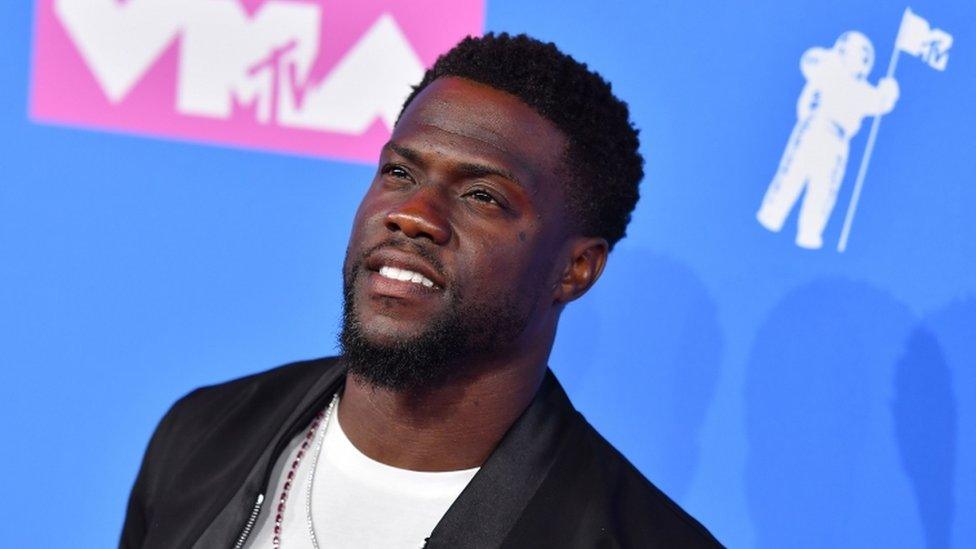
Kevin Hart withdrew as host following criticism of past tweets
The Oscars host usually delivers an opening monologue as well as being responsible for many of the ceremony's memorable comedic moments.
As well as the main host, the ceremony also usually enlists an array of movie stars to present the individual statuettes.
ABC Entertainment president Karey Burke said this year's ceremony on 24 February in Los Angeles would "just have presenters host the Oscars".
The decision was taken after Hart's withdrawal, she said.
Ms Burke added that "the mystery" hanging about this year's event "has been compelling", proving that viewers were keen to watch it.
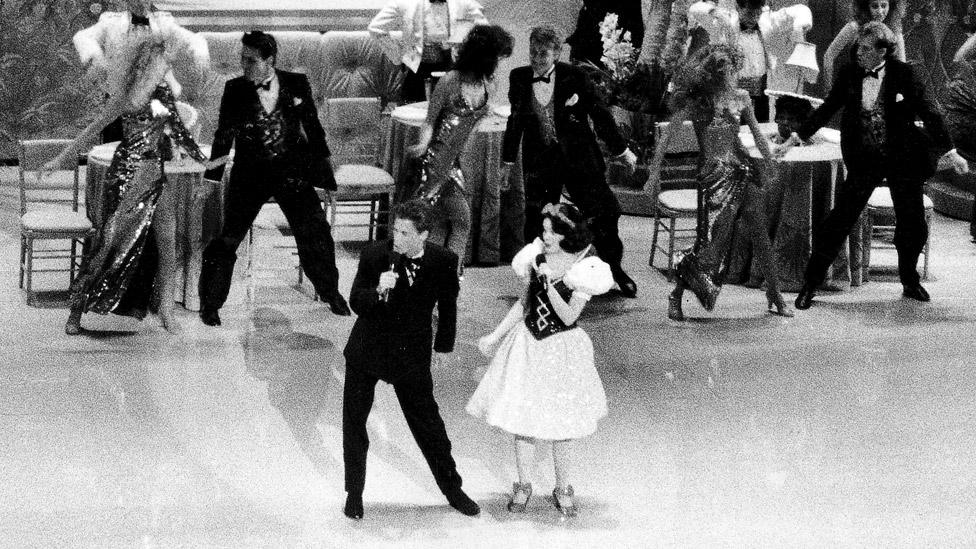
Rob Lowe performed a duet with Snow White the last time the Oscars had no host
A number of Academy Awards ceremonies have had no host. The last time, in 1989, proved highly controversial, not least due to an opening number featuring Rob Lowe and an actress dressed as Disney's Snow White.
A group of leading Hollywood figures wrote an open letter after the ceremony, calling the telecast "an embarrassment to both the Academy and the entire motion picture industry".
The Walt Disney Company also filed a legal action against the Academy of Motion Picture Arts and Sciences, accusing the organisation of copyright infringement.
The role of anchoring the Oscars has thrown up problems for a number of hosts since then. The Hollywood Reporter has described it as "the least wanted job in Hollywood, external".
The controversy about Hart's tweets and the choice not to replace him with a single host follows a difficult few years for the Academy.
What's happened since the the #OscarsSoWhite controversy of 2015
The 2017 ceremony was rocked by the so-called "Envelopegate" scandal, in which La La Land was wrongly named best picture instead of the actual winner Moonlight.
Plans to introduce a popular film award category were shelved last year following widespread criticism.
The Academy has also been stung by the #OscarsSoWhite campaign, prompted by the all-white line-ups in the four categories for acting in 2015 and 2016.
The art of hosting the Oscars
The role of Oscar host traditionally involves a number of staple ingredients that best suit those with a background in stand-up comedy.
The evening usually begins with a light-hearted musical number, followed by a monologue poking gentle fun at the assembled nominees.
Once the monologue is over, the host's role is to introduce the various awards presenters and comic interludes, and to smooth things over when things go awry.
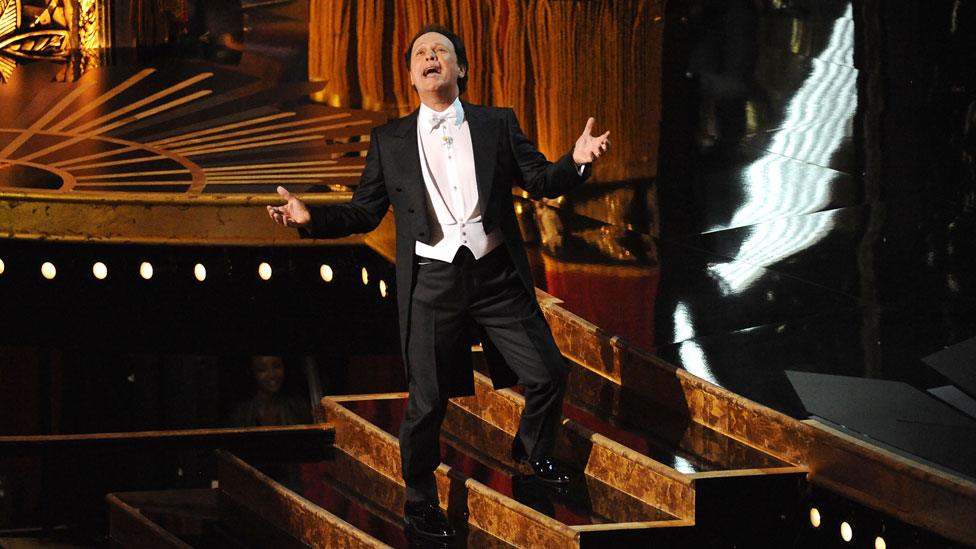
Billy Crystal last hosted the Academy Awards in 2012
Billy Crystal, who hosted the ceremony nine times between 1990 and 2012, proved particularly adept at this, as he showed in 1992 when he introduced veteran producer Hal Roach from the stage.
"It was his 100th birthday," Crystal recalled in 2013, external. "He wasn't supposed to speak, only wave. But he started speaking, holding himself up by the seat in front of him.
"You could barely hear him. It went on and on. You could feel people getting restless.
"I hit on a line and just looked at the audience and said: 'It's only fitting, he got his start in silent films!'
"For me, I could look at that one little moment and say, 'I was OK then. I was a good comedian that night.'"

Follow us on Facebook, external, on Twitter @BBCNewsEnts, external, or on Instagram at bbcnewsents, external. If you have a story suggestion email entertainment.news@bbc.co.uk, external.
- Published6 February 2019
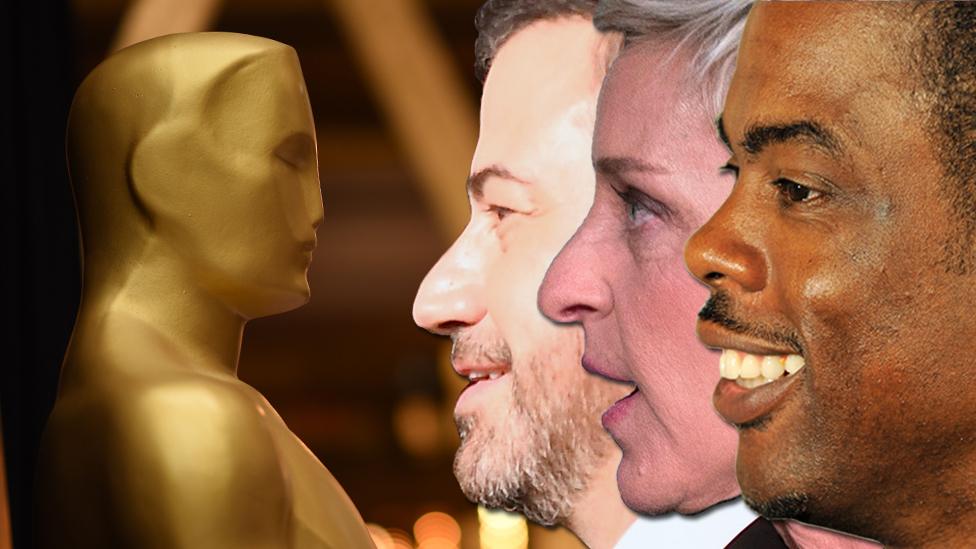
- Published6 February 2019
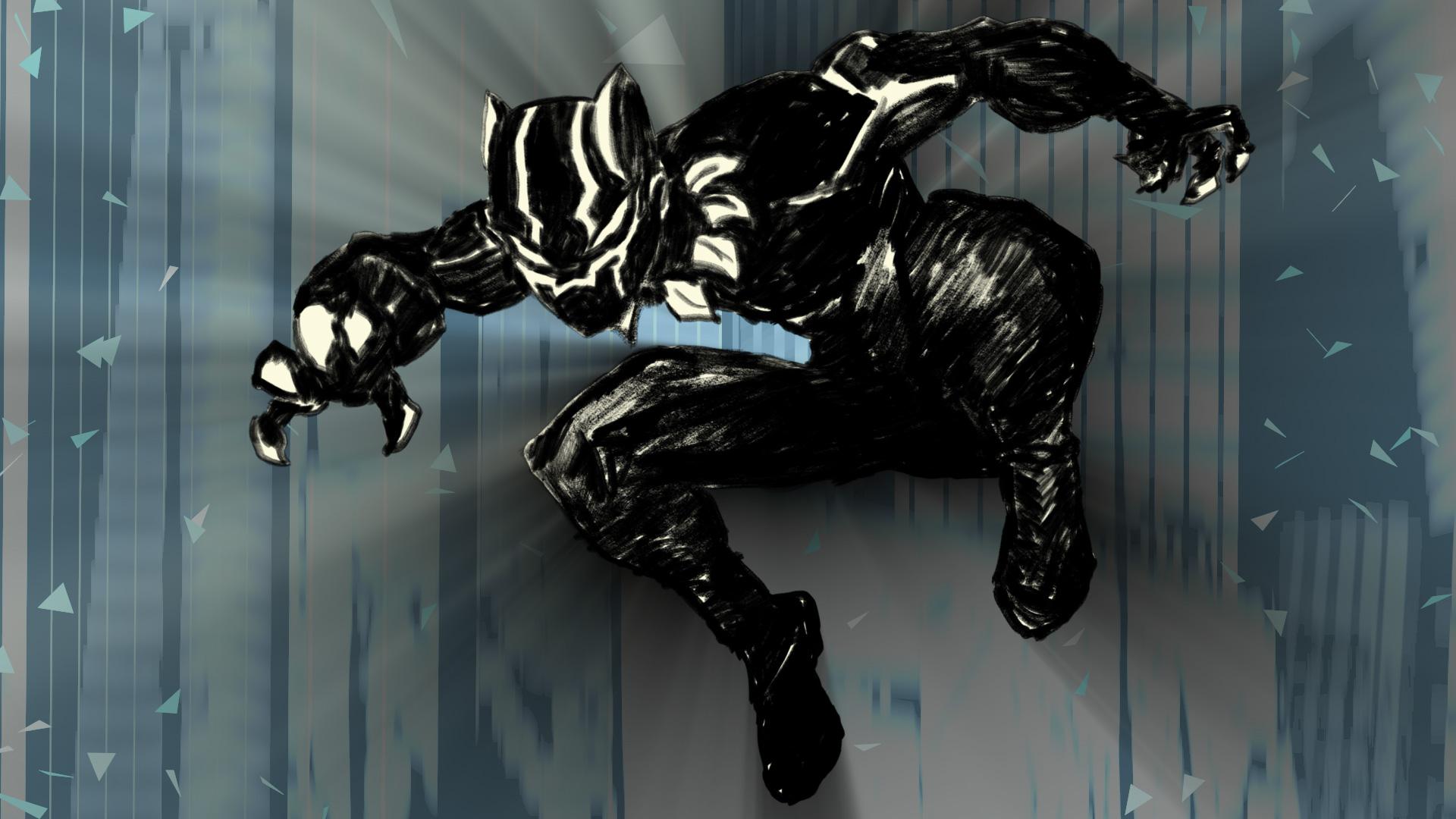
- Published5 February 2019
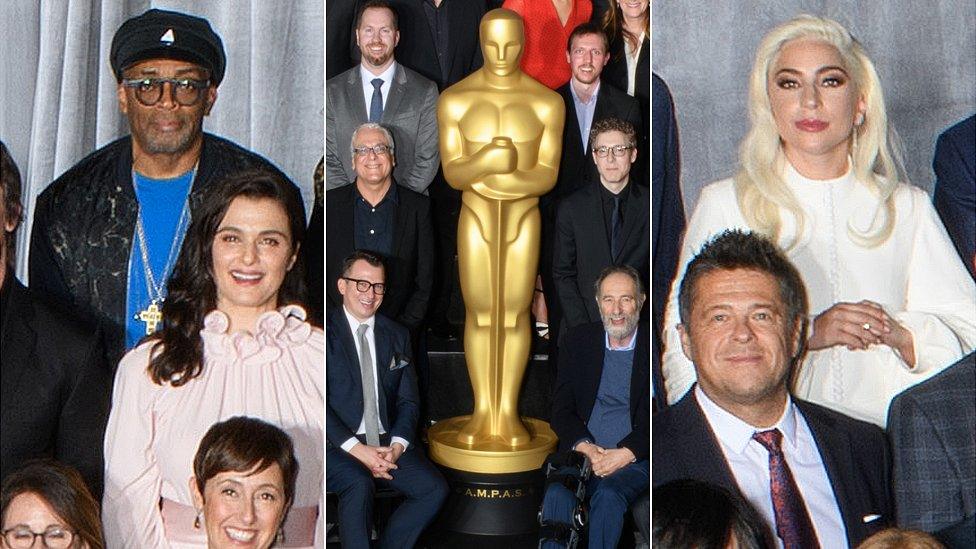
- Published9 January 2019
